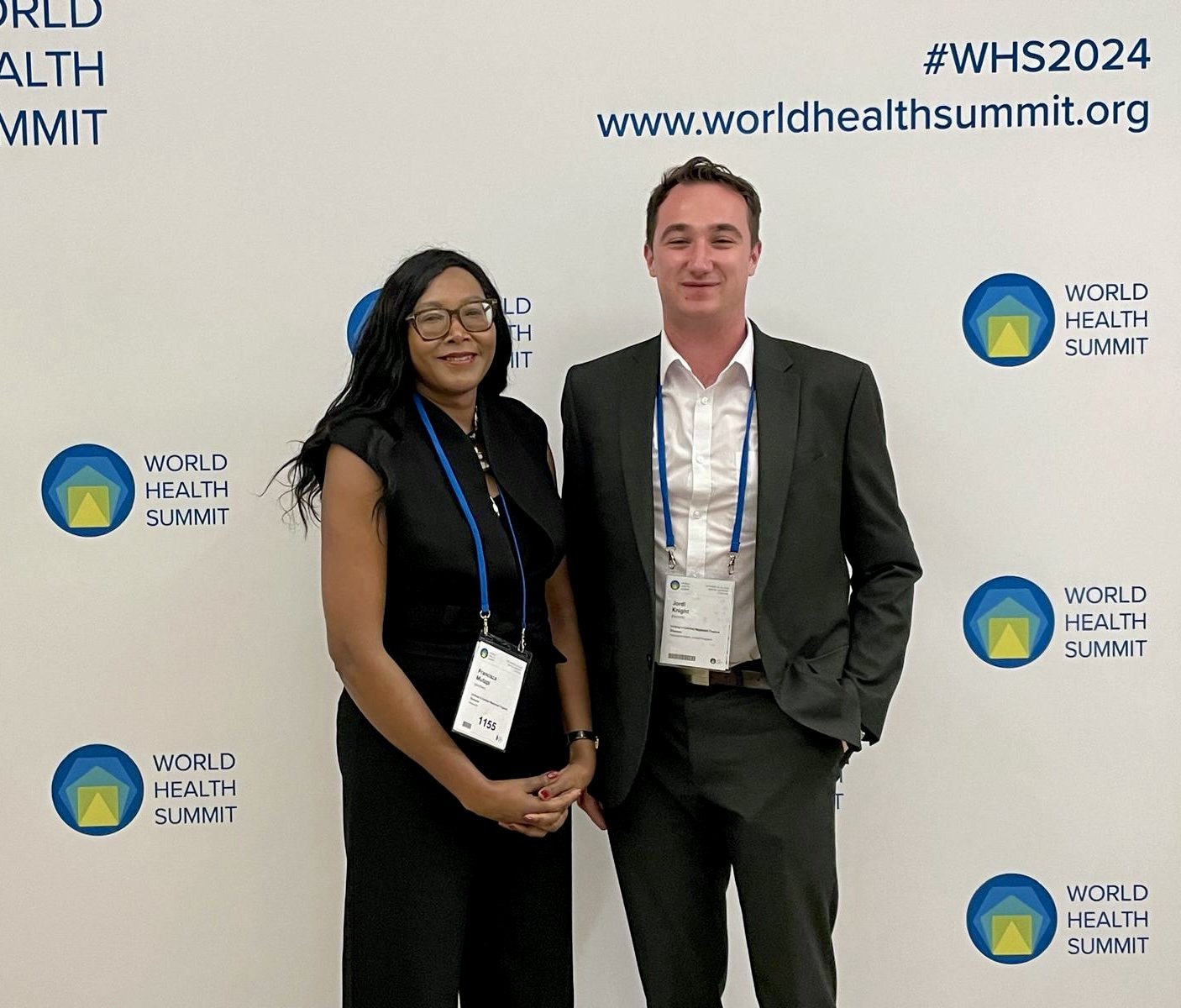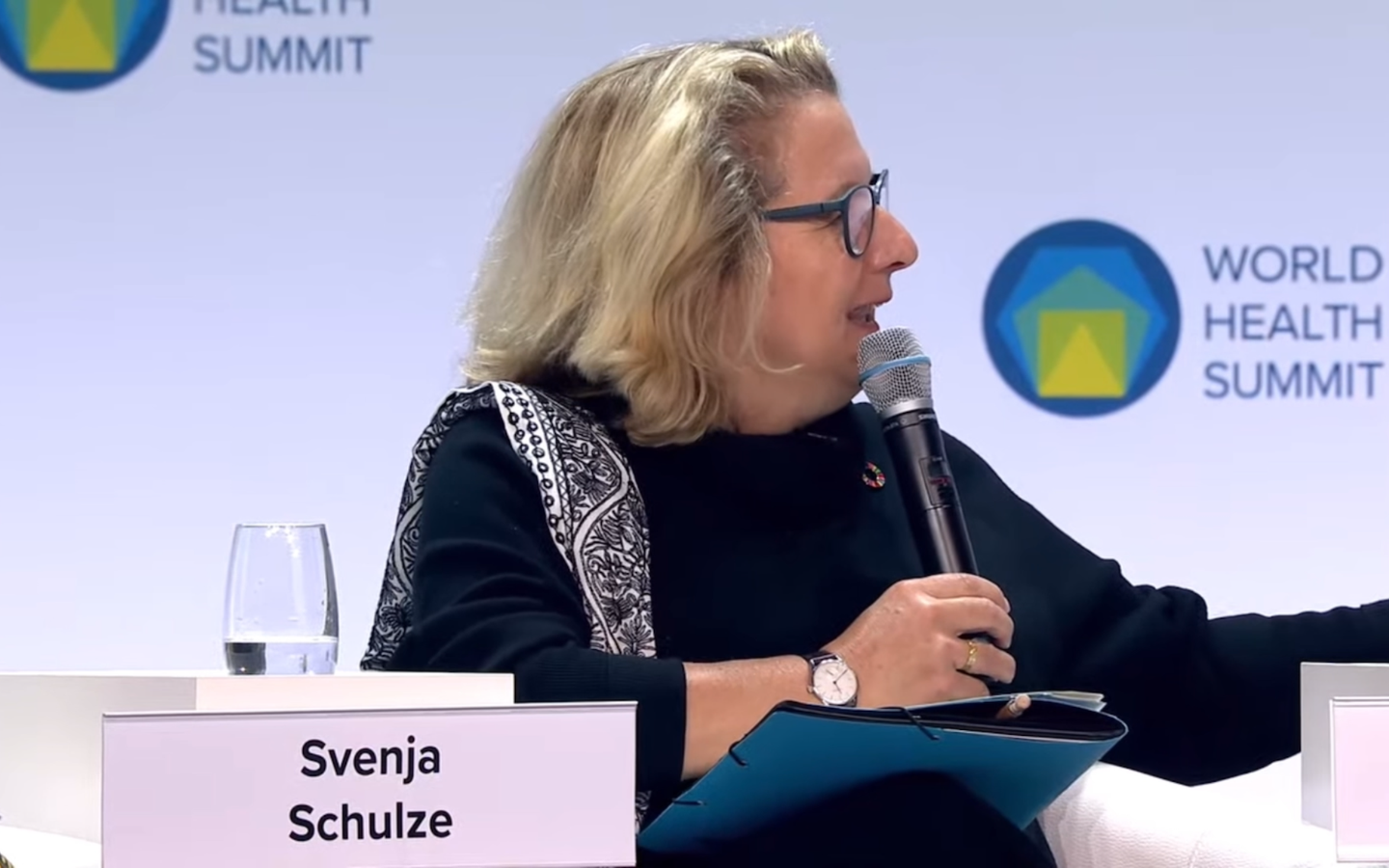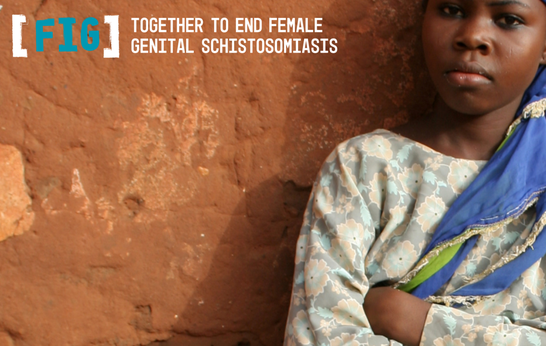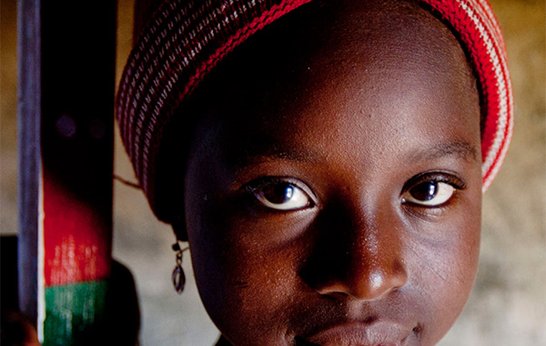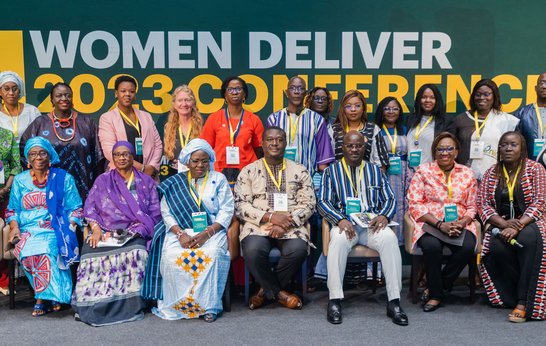At the World Health Summit in Berlin, Germany this week (13-15 October), the Federal Ministry for Economic Cooperation and Development (BMZ), Germany launched a new initiative to accelerate progress in the international fight against Female Genital Schistosomiasis (FGS), with partner Ministry of Health Malawi.
What is Female Genital Schistosomiasis, or FGS?
FGS is a widespread and hidden disease which affects an estimated 56 million women and girls in sub-Saharan African. It is a condition that can result from untreated schistosomiasis, caused by parasitic worms that live in freshwater.
FGS can lead to infertility, miscarriage, and stillbirth. Women and girls with FGS have a three-times higher risk of acquiring HIV and two-times higher risk for human papilloma virus (HPV), which is a primary cause of cervical cancer.
Despite being easily treated and preventable, FGS often goes unrecognised and misdiagnosed as a sexually transmitted infection. This means many women and girls with FGS are being given the wrong treatment for their condition and can also experience stigma within their families and communities.
From Neglect to Action: Invest in Women, Invest in Health
The new initiative, ‘From Neglect to Action: Invest in Women, Invest in Health’, was launched by Minister Svenja Schulze as part of the ‘Investing in Women's Health: Driving Global Development’ session held at the World Health Summit.
The initiative looks to ensure the diagnosis and treatment of FGS is incorporated into sexual and reproductive health services, whilst raising awareness and mobilising resources for fighting this disease, to ensure that more women and girls can enjoy equal participation in society and lead healthy lives.
As a key implementing partner and pilot country, Hon Khumbize Kandodo Chiponda, Minister of Health for Malawi spoke at the session and shared why it is vital for the focus to be put on FGS to improve women’s health:
"Women have been suffering in silence not knowing it is schisto and it is treatable."
It was also great to see Dr. Atul Gawande, Assistant Administrator for Global Health, USAID, reiterating the US’s consistent commitment to investing in NTDs, as well as Sexual and Reproductive Health and Rights (SRHR), tying this to the importance of achieving Universal Health Coverage and the need for these services to work closely together.
Dr. Victoria Gamba from LVCT HEALTH Kenya who works to raise awareness of the disease finished the session with a rallying call to action, asking everyone to play their part to beat FGS:
“Schistosomiasis– are we going to end it? Yes!”
We were delighted to be in the room to see Germany demonstrating their long-standing commitment to beat NTDs, amongst partners including the World Health Organization, USAID, United Nations Population Fund (UNFPA), Deutsche Gesellschaft für Internationale Zusammenarbeit (GIZ) GmbH, and the Gates Foundation. We encourage other countries to invest in the initiative. Together, we can unite, act and eliminate these diseases for good.
Read BMZ’s press release.
Pictured below: Vice Chair of the Uniting Board, Dr Francisca Mutapi, and Donor Insight Analyst, Jordi Knight, attend the World Health Summit 2024
